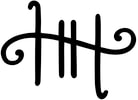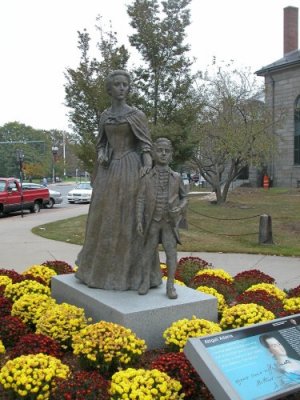|
7/11/2013 0 Comments Submitting to a MentorAs a mother, I can only imagine the feelings of Abigail Adams when ten year-old John Quincy left their home in Braintree, Massachusetts, to travel with his ambassador father to Europe for the first time. While the young man was there, he attended private schools in Paris and the Netherlands, became proficient in three languages, and traveled to Russia at age fourteen, serving as secretary and translator to diplomat Francis Dana. When he returned to the United States at age 18, he attended Harvard, graduating in two years. He then studied law with Theophilus Parsons for three years before passing the bar and becoming an attorney in Boston. How did John and Abigail Adams prepare this young man to become a practicing attorney, foreign diplomat, Harvard professor, U.S. Congressman, U.S. Senator, U.S. Secretary of State, and U.S. President? Both parents had experienced mentoring and had a great education themselves; they valued education in their home and carefully prepared the environment of learning for all their children; and they entrusted the further education of their son to other great mentors. Abigail was a minister’s daughter, tutored by her father, who had access to great libraries in the homes of her father, grandfather, and husband. She read extensively on many topics, and her vivid letter-writing displays the vastness of her self-education. In Abigail’s first letter to John Quincy while he was abroad, she admonished:
[A]ttend constantly and steadfastly to the precepts and instructions of your Father as you value the happiness of your Mother and your own welfare. His care and attention to you render many things unnecessary for me to write which I might otherways do, but the inadvertency and Heedlessness of youth, requires line upon line and precept upon precept, and when inforced by the joint efforts of both parents will I hope have a due influence upon your Conduct. (Adams Family Correspondence, v3: April 1778-September 1780 [Cambridge: The Belknap Press of Harvard University Press, 1973], pp 37-39.) The example and efforts of parents was uppermost in Abigail’s mind. But she didn’t stop there. She encouraged him to take this opportunity to improve his talents and double them in number, because he would someday be held accountable. And she did not neglect character. This concerned mother also warned her son against temptation and vice, which, she reminded him, he had learned through his study of history. She said, “Great Learning and superior abilities, should you ever possess them, will be of little value and small Estimation, unless Virtue, Honour, Truth and integrety are added to them.” (Adams Family Correspondence, pp 37-39.) Her husband John was also mentored by his parents and received formal education in a “dame school,” a “Latin school,” and a private school before he attended Harvard. He also taught school after he graduated, while earning money to be mentored in the law by John Putnam, eventually passing the bar and becoming a barrister. He continued to read and study his entire life, corresponding with Thomas Jefferson and others, discussing a wide range of subjects until their deaths. Ambassador Adams personally concerned himself with his son’s education while they were in Europe. When John Quincy, in school in Passy, sent a copy of his study schedule to Paris, Adams provided feedback, offering suggestions for improvement based on John Quincy’s physical development and individuality. (Adams Family Correspondence, pp 308-309.) At the proper time in their son’s life, John and Abigail Adams relinquished him to other mentors, some of whom they knew well and some of whom they didn’t. They trusted both the mentors and their son to prosper in the relationships and to create a literate, productive, and virtuous adult. The point is John and Abigail wouldn’t have been able to oversee the awesome education of John Quincy Adams without having experienced a great education themselves. I’ve wondered how my education compares to John and Abigail’s. I know I have not read as extensively in the classics, sharpening my mind, as much as I wish. I did not rub shoulders, and discuss principles of government, arts, and history, with the intelligent minds of their day. And I have not written thousands of letters and speeches, honing my writing skills to excellence. But I have read some great classics and written some excellent letters and other writing. And, as an adult, I have submitted and continue to submit, to mentoring by brilliant men and women, who have blessed me with a priceless gift—the beginning of an awesome education.
0 Comments
Leave a Reply. |
AuthorBonjour! I'm Bonnie. I love learning, travel, reading, writing, photography, and all things French. I am especially passionate about agency education, the humanities, and using history as the hook for all learning! Archives
July 2021
TopicsAll Agency How To How-to Mentoring |
|
©History is the Hook, 2021
|


 RSS Feed
RSS Feed